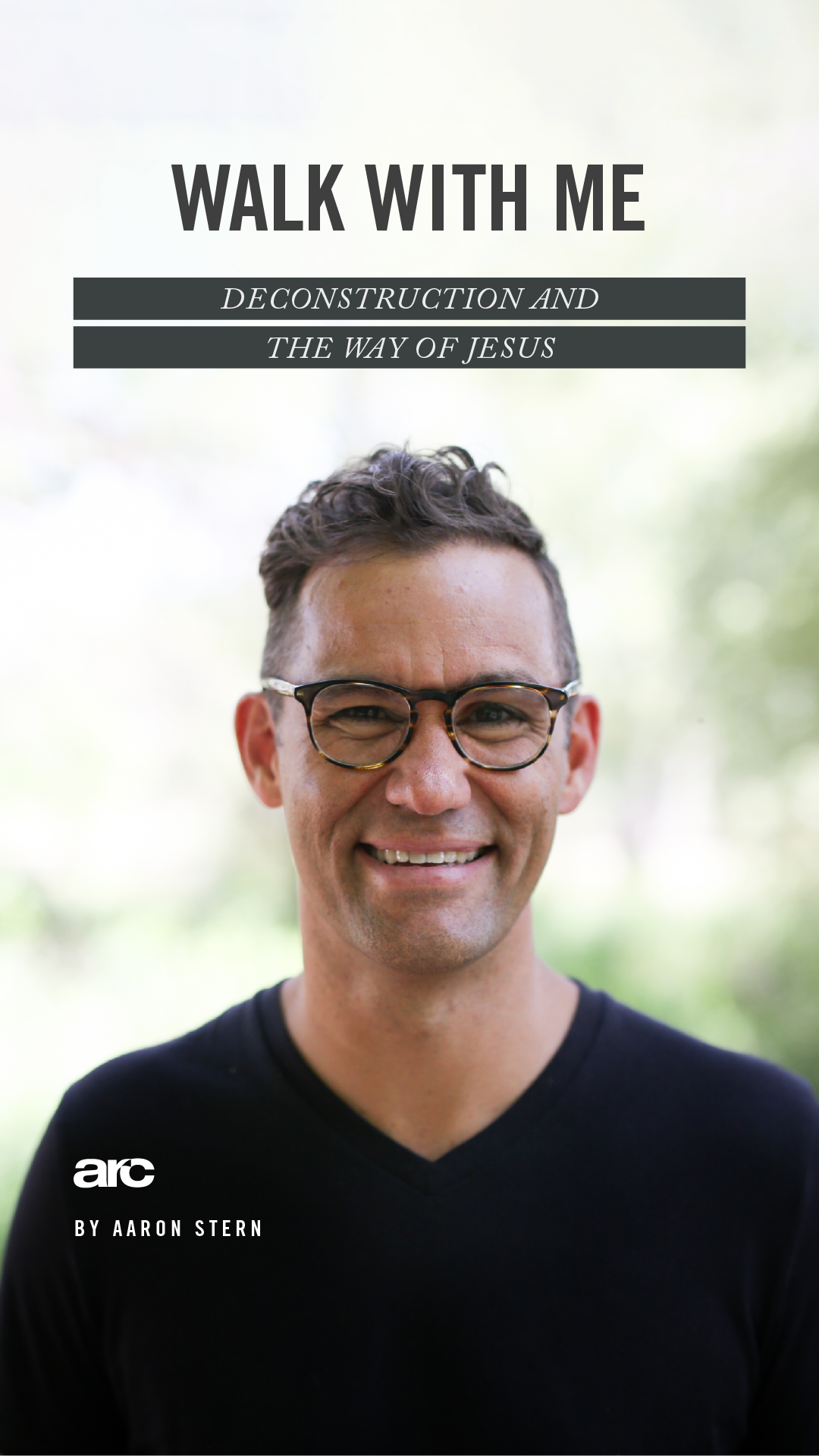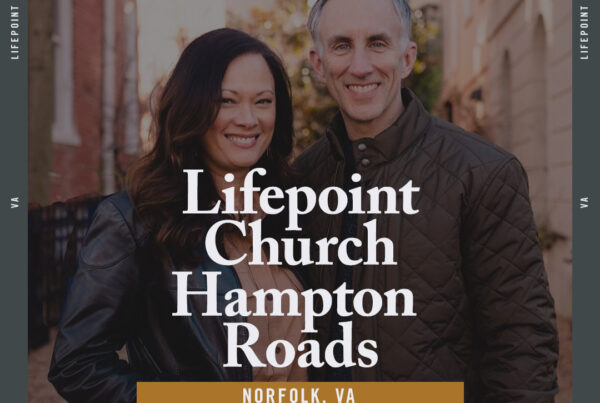Deconstruction is trending in our culture these days. I’ve had more conversations about deconstruction and the evangelical tide than I can count. There isn’t a pastor I know who hasn’t experienced a growing number of similar interactions—especially after inquiring about why they haven’t seen someone around church recently.
We have all seen deconstruction be destructive and lead to deconversion. I also hear pastors quickly naming deconstruction as trivial doubt, a tactic that feels like avoidance. Instead of meaningfully engaging the doubting heart, we offer platitudes or dismissively say, “Just trust God.”
Here’s the problem with that response: Jesus encourages deconstruction.
In the Sermon on the Mount, Jesus gives six vignettes (Matthew 5:21-48) on issues like anger, adultery, enemy love and nonviolence that all begin with, “You have heard that it was said …” followed by, “but I tell you …”
Jesus is going for the heart by highlighting ways His followers have been taught, through tradition and the religious leaders of their day, what it means to be faithful to God. But Jesus also tells them to embrace a new way that is more than exterior performance or traditionalism. Jesus encourages His followers to let go of unhealthy, unscriptural ways of living their faith and move toward a truer way.
Deconstruction often begins with questions like, “Does X, Y, Z really work that way?” or, “Is that really what God meant?” For some, it is the first time they are challenging areas of their faith that seem to lack integrity, questioning unevaluated beliefs or wondering if something they inherited from their family or church tradition is true to the way of Jesus.
These vignettes might sound like this in our day:
“You have heard that it was said (by your parents, youth pastor, TV preacher, etc.) that your life is hard because you didn’t pray enough … but I (Jesus) tell you, in this world you will have trouble, and I will sustain you.”
“You have heard that it was said that your feelings can’t be trusted and therefore should be dismissed and overridden… but I tell you, I created you with emotions, and they should be paid attention to. They indicate what God wants to heal and transform.”
“You have heard that it was said, if you are a Christian, you have to vote Republican or Democrat … but I tell you, to be a follower of Jesus means you are a citizen of the kingdom of God, and to fit neatly into either political party is to make it an idol.”
Even though Jesus encourages deconstruction, He is truly advocating for the reconstruction of a stronger, more authentic faith.
Our culture often deconstructs for deconstruction’s sake, as if that is the end goal. That kind of deconstruction will only lead to distrust and cultivate cynicism. That kind of deconstruction requires no creativity. Anyone can destroy something.
Jeremiah 1:10 says, “See, today I appoint you over nations and kingdoms to uproot and tear down, to destroy and overthrow, to build and to plant.”
Healthy deconstruction is an uprooting and a planting. We don’t just set our fields ablaze. We extract the weeds that are choking our faith so that we can produce a richer harvest.
In 2006, I was a college pastor at a large church where the lead pastor had a moral failure. I was devastated and disoriented. I started asking questions about the church, faith and pastoral ministry that I had never asked before, and questions I’m not sure I would have asked without this horrible situation.
It was tough—often excruciating—and I had seasons of cynicism where I had more questions than answers. Today, I’m glad I experienced it. It led to stronger faith and a more Jesus-centered perspective on Scripture, my vocation and the church.
The word deconstruction has become a buzzword and a catch-all. For some it means deconversion, while for others it means hard questions. To others still it’s considered “woke” to talk about all the bad things they experienced or were taught—the end goal being to decimate any person or belief system that supports a worldview they now reject.
Personally, I prefer the word “disentangling.” This word paints the picture of our faith being detached from cultural attitudes, theology or ways of living that have filtered into the church. Instead, we should embrace a purer, grounded faith that better reflects the truth and way of Jesus. It’s a house renovation rather than a demolition. This is an exercise all followers of Jesus should engage in. There is an important place in the spiritual journey for fighting for faith. Deconstruction—or disentangling—is not always throwing away faith.
Listen. Questions about our faith often come from painful experiences or traditions that seem to lack integrity. Some are legitimate concerns that need to be addressed: abuse of power in the church, celebrity pastor lifestyles, moral failures, lack of empathy for the hurting, blurred lines with political ideology, Christian nationalism or celebration of war. We must be attuned to personal experiences of pain and take seriously the issues that trip people up. Take heed to the words of Jude: “Be merciful to those who doubt” (v. 22).
Get clear about the way of Jesus. The chatter regarding what to think about these issues is endless, and there is no shortage of political pundits pushing an ideology at every turn. We need to cut through the noise with clarity and conviction. What are you saying amid the racket? Is it a political message with some Christianese mixed in? Or are you advocating for meekness, gentleness and rejoicing in persecution? These aren’t just the teachings of Jesus. They aren’t just ideas to embrace, but a lifestyle to emulate. In the words of the Mandalorian, “This is the Way.”
I have found people aren’t leaving the church because they don’t like what Jesus teaches. People are leaving the church because the church doesn’t do what Jesus teaches. This cultural moment calls for the way of Jesus to take center stage again.
Create a space where questions and doubt are met with love and comfort. Deconstruction doesn’t have to be the beginning of the end, especially if it’s met with love. I made it through my big questions and found a stronger faith because I wrestled within community. Friends grieved with me, asked me hard questions and helped me process my uncertainty. They didn’t run in the other direction. They sat with me in the rubble and helped me rebuild.
Some would say, “No way! It’s not safe to ask hard questions. I would be ashamed
of the questions I have.” If that resonates with you, seek a healthier community, and create the space for others to find loving fellowship in the midst of doubt or grief.
In Luke 24:13-35, one of Jesus’ first interactions after His resurrection is a long walk with two of His disciples heading away from Jerusalem on their way to Emmaus. They were downcast after seeing their messianic hopes dashed, and they shared their disappointment with Jesus (whom they didn’t recognize). Jesus wasn’t who they thought He was. He was dead, and their hopes for themselves and the future of Israel were buried with Him. They were walking away from Jerusalem, but in reality they were walking away from Jesus.
Here is the beautiful thing. As they walked away from Jesus, Jesus walked with them. And during that walk, Jesus reoriented them. He reminded them of the truth and beauty of the unified vision of the Scriptures. He wasn’t in a hurry, and He wasn’t too busy to restore the faith of two heartbroken disciples.
Doubt is not a virtue, but Jesus does not dismiss the doubter. We say, “Come as you are.” Do we really mean it? Are we willing to meet people right where they are, even when they seem to be walking away from Jesus? Even when the road is long, and reconstruction requires time and intention?
After my vocation-shaking, heart-shattering moment in 2006, I was introduced to the writings and wisdom of Eugene Peterson. His prophetic voice resonated deep in my soul. Over the years, Jesus reoriented me through Pastor Eugene.
In 2009, I had the privilege of spending time with him and his wife, Jan, at their home for three days. Later, I would attend his funeral in Montana in 2018. There, his son Leif shared a story about his dad that brought me to tears and reflects the heart of the Father. To anyone in the throes of deconstruction, hear these words and take heart.
“For 50 years you stole into my room at night and whispered softly to my sleeping head. It’s the same message over and over: God loves you. He’s on your side. He’s coming after you. He’s relentless.”
This article was featured in the Spring 2023 AVAIL Journal. Click to read this article and the full “Inside the ARC” Special Edition at AVAIL JOURNAL

is the lead pastor of Mill City Church in Fort Collins, Colorado. He, his wife, Jossie, and their boys, Parker, Cohen, Brooks and Smith, planted Mill City with ARC in 2012. Aaron has a master’s degree in theology from Oral Roberts University and is the author of What’s Your Secret? Freedom Through Confession. He is passionate about training leaders to be spiritually vibrant, theologically rooted, emotionally healthy and relationally connected. Follow him on Instagram at @aaronstern.





